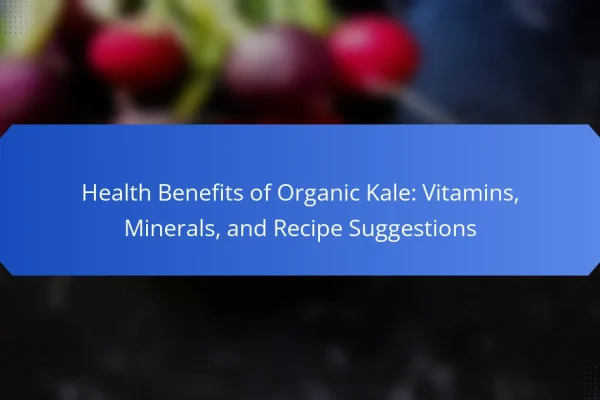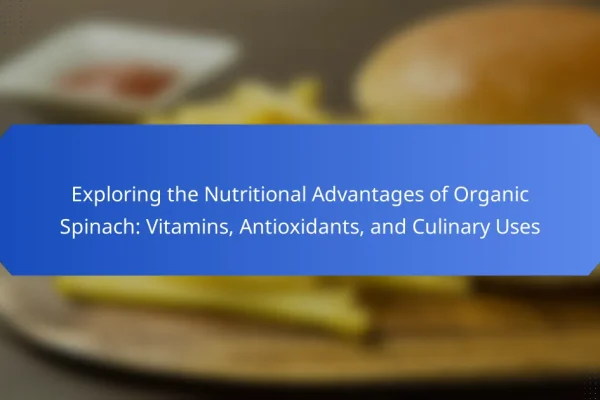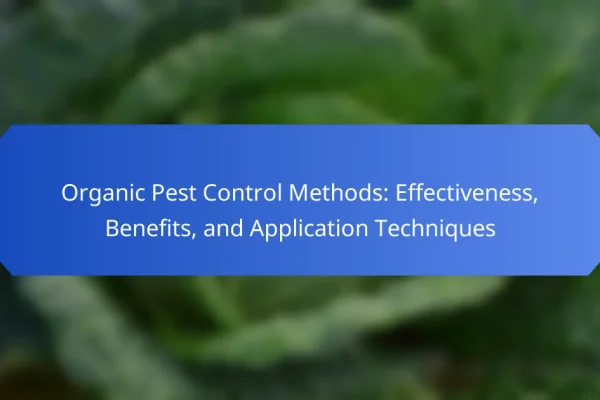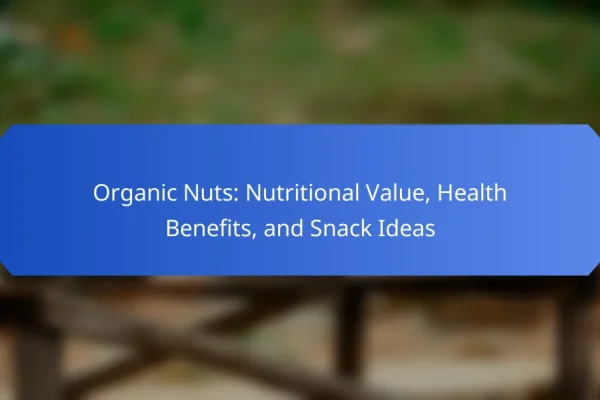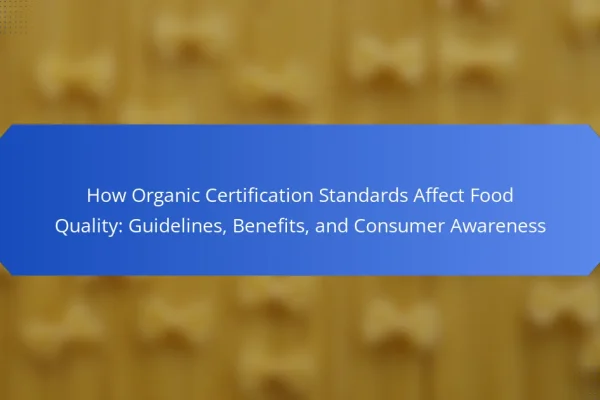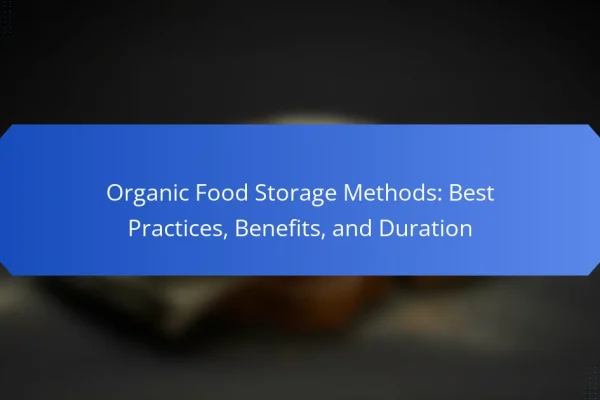
Organic Food Storage Methods: Best Practices, Benefits, and Duration
Organic food storage methods are essential techniques aimed at preserving the freshness and nutritional value of organic produce. Key storage methods include refrigeration, freezing, canning, dehydrating, and using airtight containers, each serving to extend the shelf life and maintain the quality of organic foods. Best practices for effective storage involve keeping items in cool, dry…


